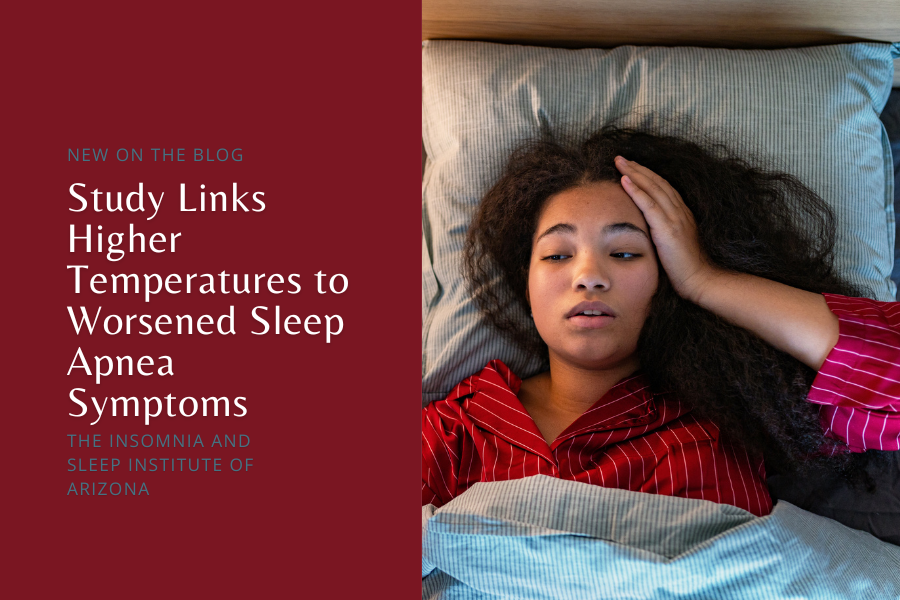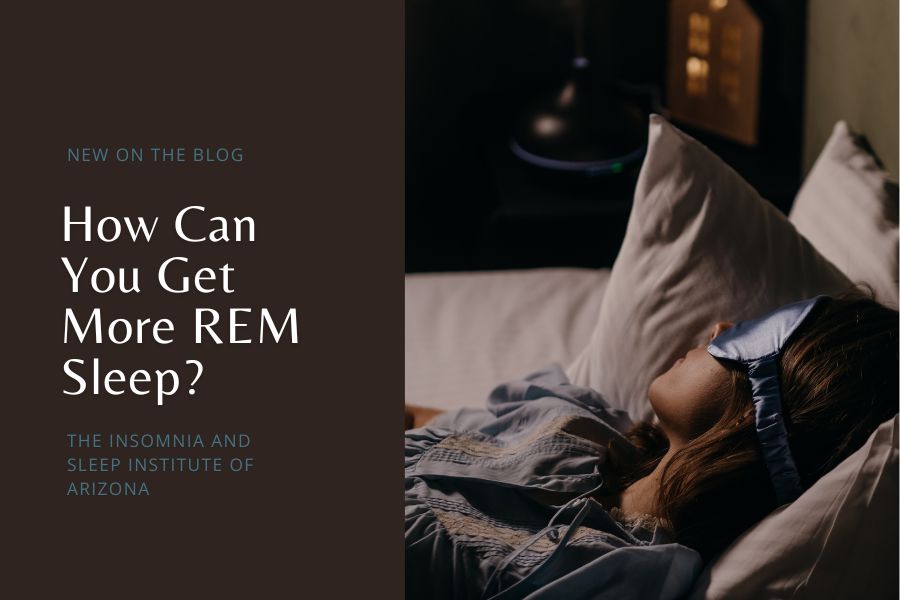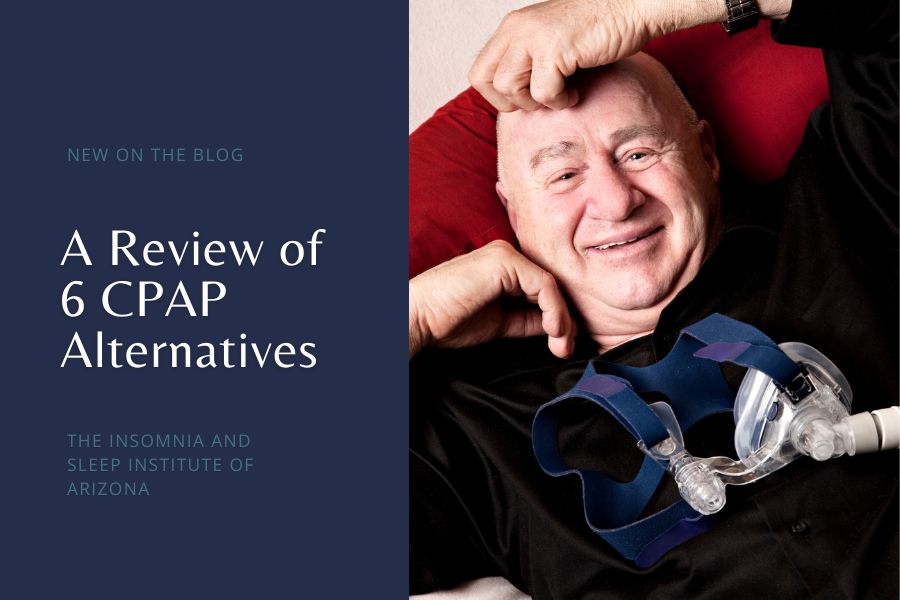What does COVID-19 has to do with sleep apnea? Quite a bit according to current research, which is just one more reason those with sleep apnea (or those who think they may suffer from sleep apnea) need to work with experts like those at The Insomnia and Sleep Institute of Arizona. With two locations in the Phoenix area, our centers are staffed by sleep specialists concentrating in sleep care and we are driven by outcomes—and that begins with the correct diagnosis. Your consultations are only with sleep specialists who diagnose sleep disorders first, then guide you through the next steps in testing and treatment.
According to a study published in BMJ Open Respiratory Research, sleep apnea and specifically obstructive sleep apnea (OSA) has been pinpointed as a risk factor for developing severe coronavirus disease that requires hospitalization. OSA is now considered a possibly “prominent factor” that contributes to such hospitalization, with researchers noting that procalcitonin and C-reactive protein were much higher in those with COVID-19 who were placed in critical care units when compared to those who were not.
The Importance of Treating Sleep Apnea
The study’s researchers also stress that there are some common co-morbidities associated to OSA that are also present in those who develop severe COVID-19, including diabetes, advanced age, a higher body mass index (BMI), and being male. According to the authors, “Such risk would have substantial effect as OSA is a common disease affecting at least 8% of the population, with higher prevalence in older age groups reaching to over 20% in individuals over 60 years of age.”
The initial goal of the study was to find out if OSA is indeed a risk factor for COVID-19 and severe COVID-19. “Severe” was hallmarked with hospitalization regardless of the risk factors of age, BMI, sex, diabetes status, and other independent risks like coronary heart disease, hypertension, chronic obstructive pulmonary disease, and asthma. A multivariate logistic regression model was used to assess the association, then researchers also performed meta-analysis alongside earlier studies to examine any links between severe COVID-19 and OSA.
OSA and COVID-19 by the Numbers
The study revealed that 445 patients with a mean age of 52.7 years had been diagnosed with COVID, and 38 of those 445 also suffered from OSA. The latter group were an average age of 61.3 years. The researchers claim that this “reflects a similar prevalence of OSA diagnoses in COVID-19-infected [individuals] as in the normal population.” Those who needed hospitalization and were considered cases of “severe” COVID included 20.9 percent with an OSA diagnosis. Researchers further report that in the meta-analysis of 15,835 patients with COVID-19, those who also had OSA were more than twice as likely to be hospitalized.
Ultimately, researchers believe that identifying people who are high-risk for COVID-19 should also be screened for indications of OSA. This is critical, since an OSA diagnosis requires seeing a sleep specialist. There are certainly many people with sleep apnea, including OSA, who struggle with poor sleep quality and even put themselves in dangerous situations due to their sleep disorder. Help is available for sleep apnea, and having a correct diagnosis and treatment plan may help assess your COVID-19 risk as well according to this recent study.
Treating OSA
The first step in treating OSA is getting a correct diagnosis. This is critical prior to any testing or treatment plan being developed. The first step for many with an OSA diagnosis is a CPAP machine. Trying a CPAP machine is required for those who might be interested in more invasive therapies, such as implants. Your sleep specialist can also talk with you about lifestyle choices and changes that might lessen the severity of sleep apnea, such as a healthy diet and exercise.
There are also certain pillows and beds that can be helpful in reducing the severity of sleep apnea symptoms. For example, if you are a back sleeper, that can exacerbate sleep apnea. Shifting to side sleeping can be helpful, and there are special pillows just for that position. If you cannot stop sleeping on your back, elevating the head with a wedge pillow might be recommended. Some pillows are also more CPAP-friendly than others, as they are designed to accommodate therapy masks.
To learn more about sleep apnea, schedule a consultation with The Insomnia and Sleep Institute today. Connect with us by completing the online form or call us at (480) 745-3547.
![What does COVID-19 has to do with sleep apnea? Quite a bit according to current research, which is just one more reason those with sleep apnea (or those who think they may suffer from sleep apnea) need to work with experts like those at The Insomnia and Sleep Institute of Arizona. With two locations in the Phoenix area, our centers are staffed by sleep specialists concentrating in sleep care and we are driven by outcomes—and that begins with the correct diagnosis. Your consultations are only with sleep specialists who diagnose sleep disorders first, then guide you through the next steps in testing and treatment. According to a study published in BMJ Open Respiratory Research, sleep apnea and specifically obstructive sleep apnea (OSA) has been pinpointed as a risk factor for developing severe coronavirus disease that requires hospitalization. OSA is now considered a possibly “prominent factor” that contributes to such hospitalization, with researchers noting that procalcitonin and C-reactive protein were much higher in those with COVID-19 who were placed in critical care units when compared to those who were not. The Importance of Treating Sleep Apnea The study’s researchers also stress that there are some common co-morbidities associated to OSA that are also present in those who develop severe COVID-19, including diabetes, advanced age, a higher body mass index (BMI), and being male. According to the authors, “Such risk would have substantial effect as OSA is a common disease affecting at least 8% of the population, with higher prevalence in older age groups reaching to over 20% in individuals over 60 years of age.” The initial goal of the study was to find out if OSA is indeed a risk factor for COVID-19 and severe COVID-19. “Severe” was hallmarked with hospitalization regardless of the risk factors of age, BMI, sex, diabetes status, and other independent risks like coronary heart disease, hypertension, chronic obstructive pulmonary disease, and asthma. A multivariate logistic regression model was used to assess the association, then researchers also performed meta-analysis alongside earlier studies to examine any links between severe COVID-19 and OSA. OSA and COVID-19 by the Numbers The study revealed that 445 patients with a mean age of 52.7 years had been diagnosed with COVID, and 38 of those 445 also suffered from OSA. The latter group were an average age of 61.3 years. The researchers claim that this “reflects a similar prevalence of OSA diagnoses in COVID-19-infected [individuals] as in the normal population.” Those who needed hospitalization and were considered cases of “severe” COVID included 20.9 percent with an OSA diagnosis. Researchers further report that in the meta-analysis of 15,835 patients with COVID-19, those who also had OSA were more than twice as likely to be hospitalized. Ultimately, researchers believe that identifying people who are high-risk for COVID-19 should also be screened for indications of OSA. This is critical, since an OSA diagnosis requires seeing a sleep specialist. There are certainly many people with sleep apnea, including OSA, who struggle with poor sleep quality and even put themselves in dangerous situations due to their sleep disorder. Help is available for sleep apnea, and having a correct diagnosis and treatment plan may help assess your COVID-19 risk as well according to this recent study. Treating OSA The first step in treating OSA is getting a correct diagnosis. This is critical prior to any testing or treatment plan being developed. The first step for many with an OSA diagnosis is a CPAP machine. Trying a CPAP machine is required for those who might be interested in more invasive therapies, such as implants. Your sleep specialist can also talk with you about lifestyle choices and changes that might lessen the severity of sleep apnea, such as a healthy diet and exercise. There are also certain pillows and beds that can be helpful in reducing the severity of sleep apnea symptoms. For example, if you are a back sleeper, that can exacerbate sleep apnea. Shifting to side sleeping can be helpful, and there are special pillows just for that position. If you cannot stop sleeping on your back, elevating the head with a wedge pillow might be recommended. Some pillows are also more CPAP-friendly than others, as they are designed to accommodate therapy masks. To learn more about sleep apnea, schedule a consultation with The Insomnia and Sleep Institute today. Connect with us by completing the online form or call us at (480) 745-3547.](https://sleeplessinarizona.com/wp-content/uploads/2021/02/ISIA-1029702088.jpg)







